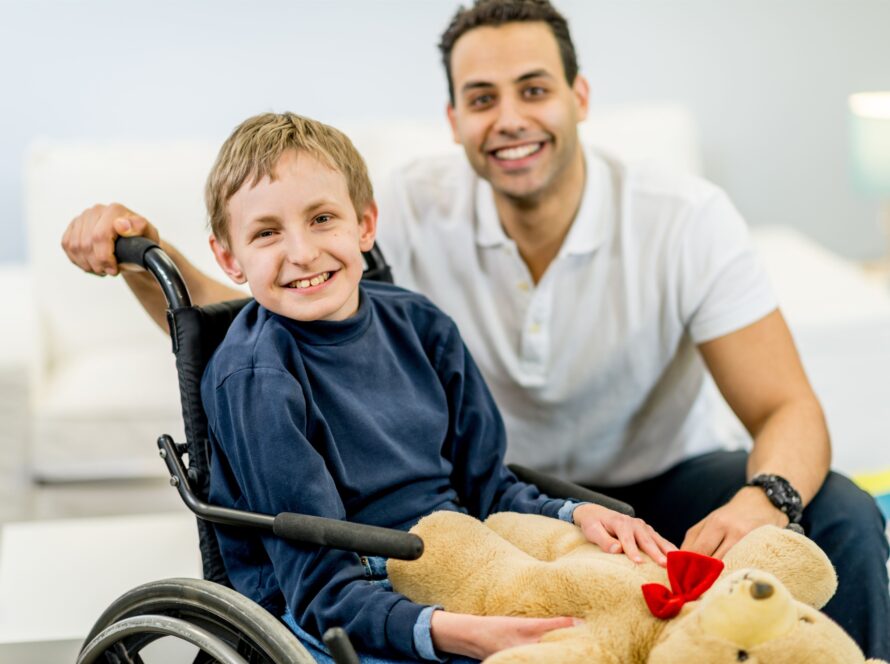When understanding the roles in children’s homes, it’s important to know that each staff member contributes uniquely to a child’s safety, development, and well-being.
Whether you’re considering a career or managing recruitment, clarity about roles in children’s homes ensures the home operates smoothly and children receive consistent support.
For those looking to hire skilled professionals in this field, explore our Children’s Residential Recruitment Services to find qualified staff for your care home.
Clear role definitions help reduce confusion, improve teamwork, and make children’s homes recruitment more effective.
Understanding how these positions intersect also highlights the importance of training, qualifications, and day-to-day accountability.
Experienced care manager Sarah Thompson explains,
“Knowing the responsibilities of each staff member allows children to feel secure and staff to work efficiently. It’s the foundation of high-quality care.”
This is why understanding children’s home staff roles is vital for anyone working in or hiring for residential childcare.
Table of Contents
Key Takeaways
- Understanding roles in children’s homes ensures clarity, safety, and effective teamwork in residential care.
- Care worker duties, support staff responsibilities, and youth mentor jobs each serve a specific purpose in a child’s development.
- Proper training and adherence to qualifications for children’s home roles UK are essential for compliance and quality care.
- Recognizing daily tasks in children’s homes helps staff manage responsibilities efficiently and reduces workplace stress.
Clear role definitions improve career progression in children’s homes and support a structured, collaborative environment.
What is Children’s Homes Recruitment?
Before diving deeper into specific staff roles, it’s essential to understand children’s homes recruitment.
This process focuses on finding and hiring the right professionals to provide safe, consistent, and compassionate care for children in residential settings.
Recruitment is not just about filling positions; it’s about matching candidates to roles where they can thrive and make a meaningful impact.
From care worker duties to youth mentor responsibilities in care homes, every role requires careful vetting.
Learn more about how our Children’s Home Recruitment Agency supports care providers with full compliance and reliable staffing solutions.
The goal is to build a competent, reliable team that meets regulatory requirements and supports positive outcomes for children.
As one senior manager noted,
“Effective children’s homes recruitment is the difference between a well-run home and one struggling with high staff turnover. The right people make all the difference in children’s lives.”
Overview of Children’s Homes Staff Roles
In any residential childcare setting, understanding roles in children’s homes is crucial for both staff and management.
The team typically includes care workers, support staff, and youth mentors, each with distinct responsibilities that keep the home running smoothly.
Care workers are at the frontline, handling care worker duties such as supervising children, providing emotional support, and ensuring daily routines are followed.
They are often the primary point of contact for children and play a key role in fostering trust and stability.
Support staff focus on operational and administrative tasks. Their support staff responsibilities include assisting care workers, managing records, and maintaining compliance with regulations.
Though not always directly involved in day-to-day child interactions, their work is vital to the home’s structure and efficiency.
Youth mentors take on specialized roles, guiding children through educational, social, and emotional challenges.
Youth mentor jobs involve mentoring, coaching, and helping children develop life skills, which enhances their long-term well-being.
Reports from the Children’s Commissioner for England continue to highlight the importance of skilled residential staff in supporting vulnerable children.
Clear definitions of children’s home staff roles allow for effective teamwork, reduce confusion, and help every staff member understand how they contribute to the overall functioning of the home.
Care Worker Duties
Care workers form the backbone of any residential childcare team.
Their role goes beyond supervision; they provide daily support, guidance, and reassurance to children living in the home.
Understanding care worker duties is essential for anyone considering a career in this sector or involved in children’s homes recruitment.
Key daily tasks in children’s homes include:
- Supervising children during daily routines, including meals, education, and leisure activities
- Providing emotional support and guidance, helping children manage feelings and behavior
- Ensuring a safe environment through adherence to child safeguarding responsibilities for staff
- Recording observations and progress to inform care plans
- Communicating with families, schools, and external agencies to support the child’s development
By balancing these responsibilities, care workers foster trust and stability. Their consistent presence helps children feel secure while also supporting their emotional, educational, and social growth.
Support Staff Responsibilities
Support staff play a crucial role in ensuring the smooth operation of a children’s home.
While they may not always be involved in direct care, their work underpins the daily functioning of the home and supports care worker duties effectively.
Key support staff responsibilities include:
- Managing administrative tasks such as record-keeping, scheduling, and reporting
- Assisting care workers with daily tasks in children’s homes and supporting children’s routines
- Maintaining compliance with children’s homes recruitment and Ofsted regulatory standards
- Ensuring that resources, equipment, and facilities are properly maintained
- Coordinating with external agencies and providing logistical support for activities or appointments
By handling these operational duties, support staff frees care workers to focus on direct child interaction, creating a safer and more structured environment.
Their contributions are essential for teamwork in residential childcare and for maintaining high-quality care standards.
Youth Mentor Jobs and Impact
Youth mentors play a specialized role in residential childcare, focusing on mentoring and coaching children to develop essential life skills.
Unlike care workers who manage daily routines, youth mentors provide targeted guidance in areas such as education, social interactions, and emotional resilience.
Key aspects of youth mentor responsibilities in care homes include:
- Providing one-on-one mentoring and coaching to address behavioral or emotional challenges
- Supporting children in developing life skills, confidence, and independence
- Assisting with educational goals, homework, and personal development plans
- Offering guidance on social interactions and conflict resolution
This role is crucial for children’s emotional and social growth.
By combining support with structured mentorship, youth mentors help young people build the skills and resilience they need to thrive both within the home and in broader society.
Their presence enhances the overall effectiveness of children’s residential care roles and strengthens outcomes for every child.
Skills and Qualifications Needed
To excel in roles in children’s homes, staff must combine formal qualifications with strong personal qualities.
If you’re seeking roles that match your skills and qualifications, visit our Care Jobs in the UK page to explore current openings.
Key skills and qualifications include:
- Required certifications and training: Level 3 Diploma in Residential Childcare or equivalent, plus ongoing training for children’s home staff
- Experience: Previous work in residential care, youth support, or related children’s residential care roles is highly valuable
- Soft skills: Patience, strong communication, emotional resilience, and adaptability
- Compliance: Understanding care worker duties, child safeguarding responsibilities for staff, and adherence to home policies and legal standards
These skills and qualifications ensure staff can handle the challenges of working in children’s homes effectively while fostering a safe, structured, and nurturing environment for every child.
FAQ Section
What are the main roles in a children’s home?
The primary roles include care workers, who manage daily routines and provide emotional support; support staff, who handle operational and administrative tasks; and youth mentors, who guide children’s social, emotional, and educational development.
How do care worker duties differ from support staff responsibilities?
Care worker duties focus on direct child interaction, supervision, and safeguarding, while support staff responsibilities involve administration, assisting care workers, and maintaining compliance with children’s homes recruitment standards.
What qualifications are required for youth mentor jobs?
Youth mentors typically need experience in youth support work, children’s residential care roles, or relevant educational qualifications. Additional training in mentoring and safeguarding is essential.
How does recruitment impact the quality of care?
Effective children’s homes recruitment ensures that qualified, compassionate staff fill roles, reducing staff turnover in children’s homes and improving stability, teamwork, and outcomes for children.
Final Thoughts
Understanding roles in children’s homes is essential for delivering high-quality care and making informed hiring decisions.
Clear knowledge of care worker duties, support staff responsibilities, and youth mentor jobs helps create a structured, safe, and supportive environment for children.
Whether you want a career in children’s homes or work in recruitment like Care2Recruit, understanding these roles helps children get consistent care and staff work well as a team.
Explore opportunities, pursue the necessary qualifications, and join a sector where your skills and compassion directly impact young lives.

